Sponsored by Uchiko Town
If you want to discover the authentic Japanese countryside, you should visit Ehime Prefecture on Shikoku Island. In Japanese, the term ‘satoyama’ evokes bucolic scenes preserved in nature. Only a few kilometers north of Uchiko, the hamlet of Ishidatami is a perfect illustration of satoyama with its wooden roofed bridges and water mills. We took the driving route along the Fumotogawa River from the center of Uchiko to the Yuge Temple in the heart of the Japanese countryside.
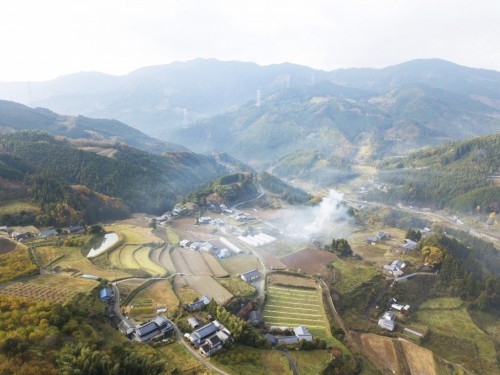
The Nostalgic Scenery : Satoyama
Literally, the term ‘satoyama’ is the association of two ideograms: sato (里) which means inhabited place and yama (山), mountain. Satoyama thus evokes an area between cultivated lands and mountains where men live in harmony with nature. Today, many local initiatives across Japan wish to revitalize satoyama through the restoration and enhancement of their rural heritage. The hamlet of Ishidatami is the best example of this in the vicinity of Uchiko.
The Covered Bridge of Tamaru
Only 10 minutes by car on the 243 road from the center of Uchiko is a fantastic viewing spot of the Tamaru Bridge on the Fumotogawa River. Uchiko has 5 covered bridges. The first function was obviously to cross the river but they were also used for the storage of agricultural tools and crops. The structure is wooden and the roof is made of cypress bark. The morning mist and autumn foliage perfectly complement this bucolic setting!
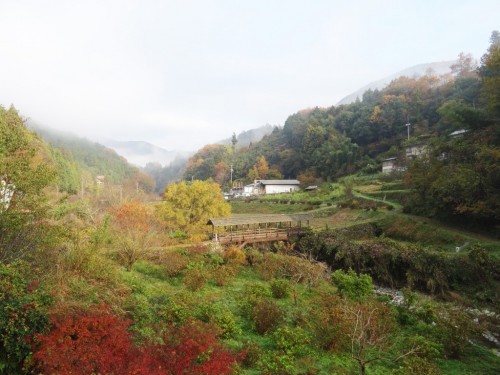
The only reason we are able to view this remarkably restored piece of Japanese heritage today is because of the investment of local residents and local associations. The Tamaru Covered Bridge is now classified as “Important Folk Cultural Property” by the city of Uchiko.
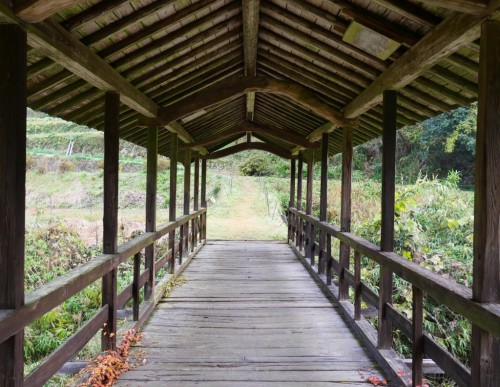
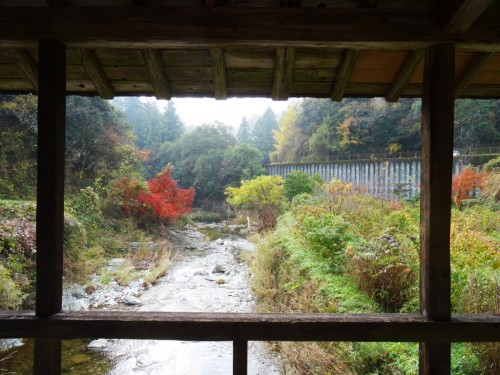
Water mills of Ishidatami Seiryu-En
We continued our way north on Route 226 to the hamlet of Ishidatami. In Ishidatami Seiryu-en Park, the inhabitants reconstructed 3 water mills around the wooden covered bridge on the Fumotogawa River. They are still in operation today and are used for dehulling rice. Until the 1950s, there were still 30 active water mills in the Ishidatami region used for agriculture.
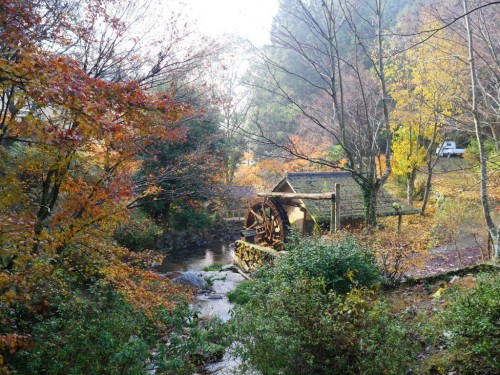
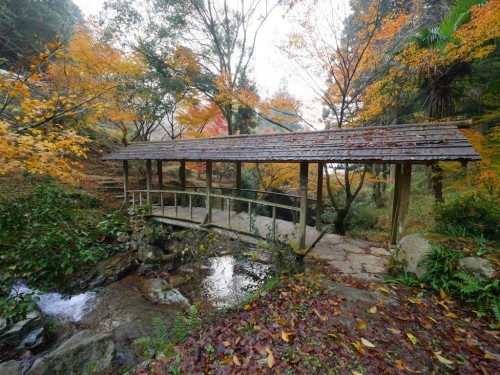
Feel free to enter the mills, observe the mechanism of the wheels and listen to the slow, gentle trickling of churning water. There is also a small path to walk around. At the Suisha Autumn Festival (November 3rd), you can sample local specialties and cruise along the river in traditional bamboo boats!
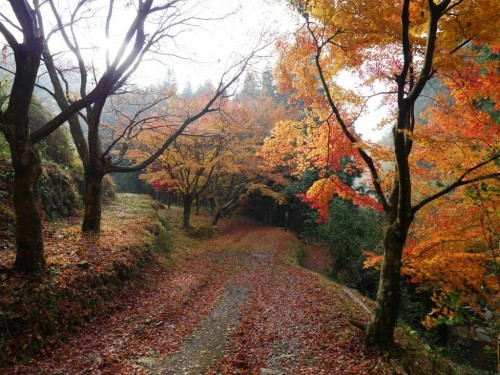
Yuge Shrine
Our last stop was at Yuge Shrine just 4 kilometers from Ishidatami Seiryu-en Park. On our first glance, we did not see the sanctuary hidden in the forest on the other side of the pond. To get there, you have to cross the 22-meter Taikobashi Covered Bridge. The pond participates in the staging of the bridge by reflecting its silhouette perfectly. The structure of the bridge is made from chestnut wood and is covered in cypress bark.
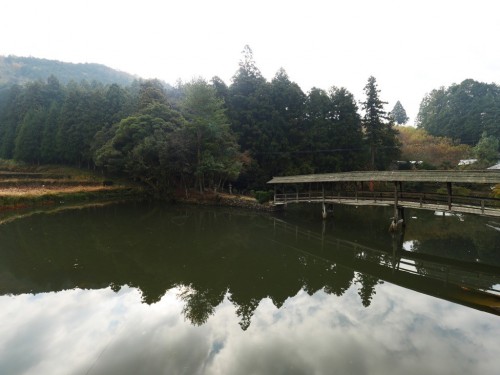
Founded in 1396, Yuge Shrine is dedicated to the sun goddess Amaterasu Ookami and is often visited to pray for good crops. After crossing the torii (Shinto traditional gate), we discovered a small main pavilion guarded by statues of half-lion, half-dog creatures.
Access
It is recommended to rent a car from Uchiko or Matsuyama to fully enjoy the scenery. From the center of Uchiko, take a 35-minute drive to Yuge Shrine. It takes 50 minutes drive from Matsuyama to Uchiko. All sites are easily visible in just half a day.
The more adventurous can take the 14-kilometer bike route from Uchiko to Ishidatami Seiryu-en Park. Yuge Shrine is located on the top of a large hill, which is therefore not greatly accessible for cyclists.
Useful information
For more information, you can consult the English pages of the Uchiko website:
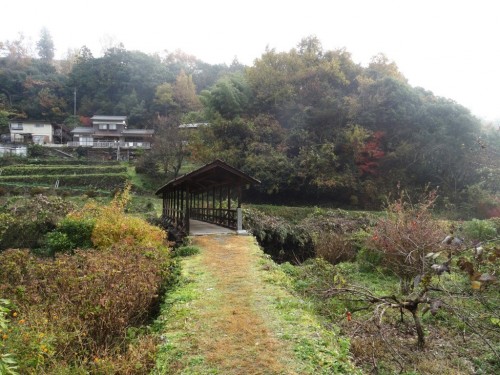
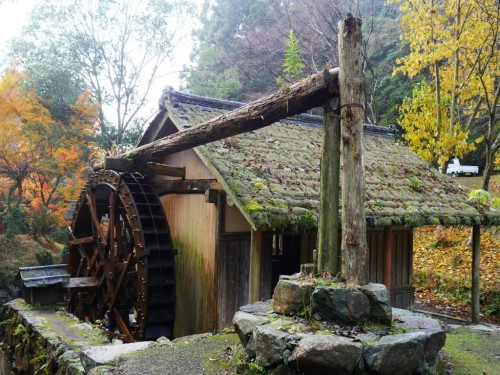
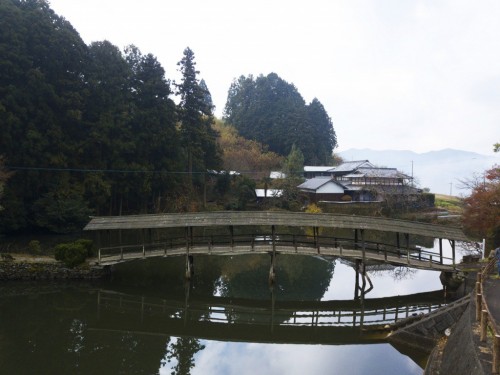
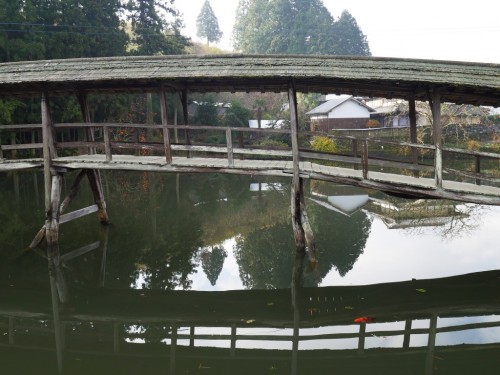
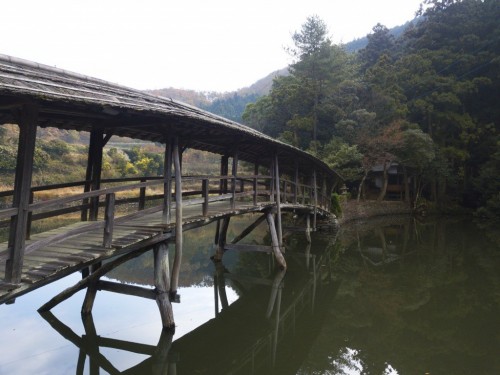
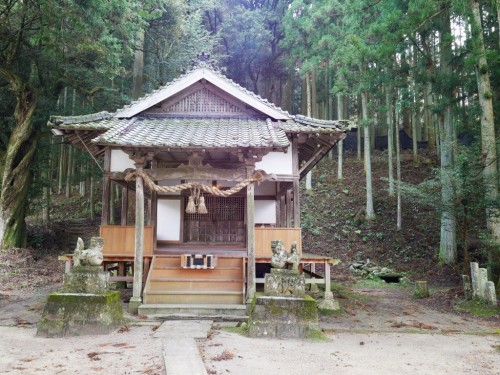
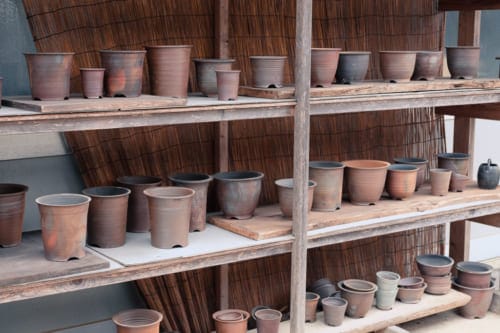

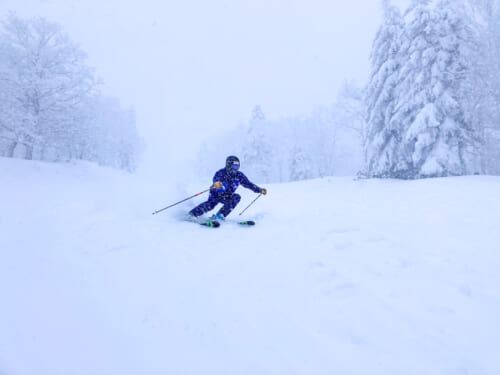
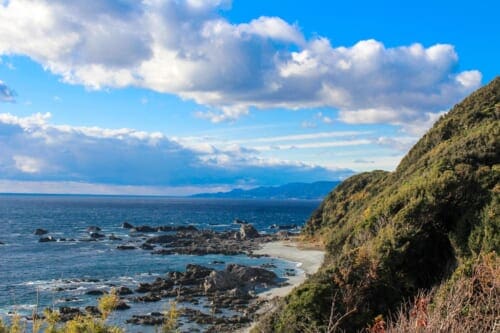
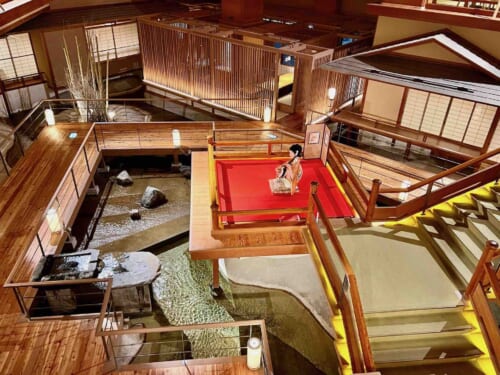
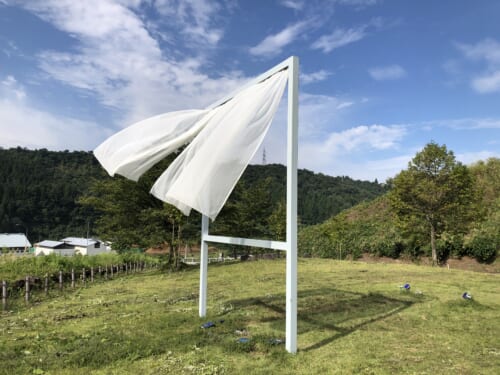


No Comments yet!